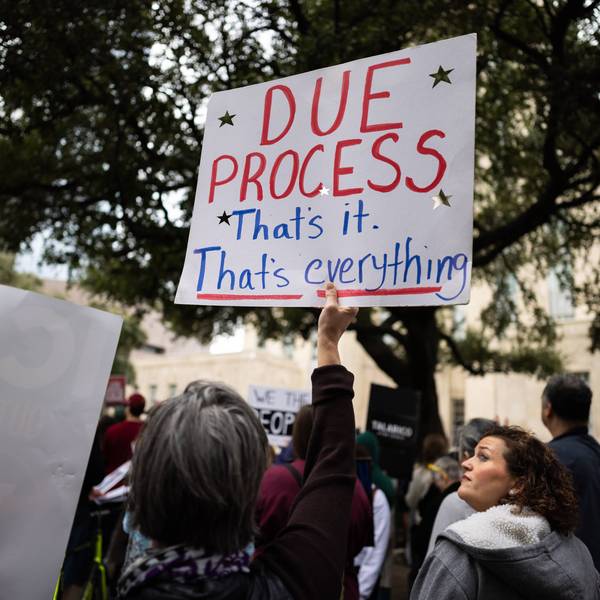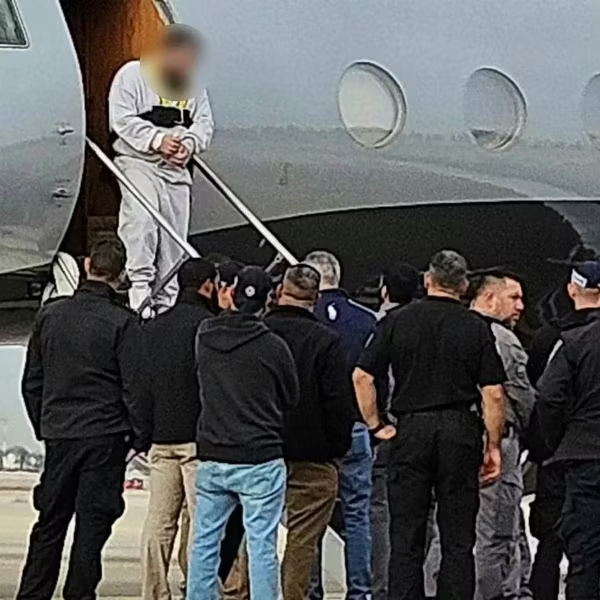A newlywed Palestinian woman from Texas released from U.S. Immigration and Customs Enforcement detention earlier this week says she was shackled for long periods, denied food and water, and subjected to other human rights abuses during nearly five months in ICE custody—all because she is a stateless person.
Ward Sakeik, 22, was born in Saudi Arabia to Palestinian parents from Gaza. Because Saudi Arabia does not grant birthright citizenship to the children of foreign nationals, Sakeik was officially stateless when her family legally emigrated to the United States when she was 8 years old.
Sakeik's parents subsequently applied for—and were denied—asylum in the U.S. but were allowed to remain legally in the country pending routine check-ins with ICE.
After graduating high school and the University of Texas, Arlington, starting a wedding photography business, marrying a U.S. citizen, and beginning the process of obtaining a green card, Sakeik and her husband went on their honeymoon in the U.S. Virgin Islands. She was detained shortly after arriving back in the United States after Customs and Border Protection agents flagged her for flying over international waters—a move that Department of Homeland Security officials said violated immigration policy.
"After a few hours from returning from our honeymoon, I was put in a gray tracksuit and shackles," Sakeik said at a press conference following her release. "I was handcuffed for 16 hours without any water or food on the bus. I have moved around like cattle. And the U.S. government attempted to dump me in a part of the world where I don't know where I'm going and what I'm doing or anything."
"We were not given any water or food, and we could smell the driver eating Chick-fil-A," she continued. "We would ask for water, bang on the door for food, and he would just turn up the radio and act like he wasn't listening to us."
Sakeik said unhygienic conditions at the Prairieland Detention Center in Alvarado, Texas—where an ICE officer was shot in the neck during a Friday evening attack—caused widespread illness among detainees.
"The restrooms are also very, very, very unhygienic," she said. "The beds have rust everywhere. They're not properly maintained. And cockroaches, grasshoppers, spiders, you name it, are all over the facility. Girls would get bit."
"I wouldn't wish this upon anybody," Sakeik said during a Saturday interview on CNN. "It was very hard, very traumatizing, and very, very difficult."
Eric Lee, an attorney for Sakeik, told CNN that immigration officials dismissed Sakeik's account as a "sob story."
"I guess what we would ask the American people is, 'Who are they gonna believe, their lying eyes or the statements of the people who are responsible for carrying out what are really crimes against humanity here in the United States?'" Lee added.
Sakeik said she now plans to advocate on behalf of women and girls imprisoned by ICE.
"I... want the world to know that the women who do come here come here for a better life, but they're criminalized for that," she said. "They are dehumanized, and they're stripped away from their rights. We have been treated as a 'less-than' just simply for wanting a better life."




